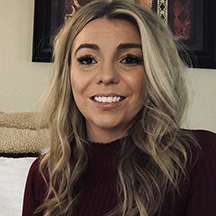New to Public Health-Cohort 2: Session 9-Emergency Preparedness
Overview
The New to Public Health Residency Program is an innovative development program designed to build confidence and competency for professionals who are new to public health.
The program is built upon the Foundational Public Health Services Model and develops enhanced knowledge and skills within the foundational areas and capabilities that are essential to public health practice.
The residency program includes an evidence-based practice project, peer networking, mentoring, facilitated reflection and journaling, simulation, and case studies to support the new resident as they transition to practice; while inspiring collaborative, interdisciplinary relationships to promote and protect health at a population level.
Statement of Need and Purpose
The residency program is designed to provide new public health professionals the foundational capabilities that are essential to public health practice. Overarching residency curriculum focuses on leadership, professional development, role-specific formation and competency. A residency program bridges the workforce by integrating the knowledge of experienced public health professionals and the fresh ideas of new staff to positively affect population health.
Integration of public health professionals from across jurisdictions allows the new public health professional to understand how diversity in the workforce strengthens essential services across city and county lines, and allows for enhanced networking and future collaboration.
Residency programs supplement state and local orientation programs and build upon department-specific policy, procedures, and tasks, to allow the resident to see a fuller picture of the field of public health.
This contemporary program utilizes a comprehensive practice model that supplements existing knowledge of staff and supports the synthesis of new ideas. The program promotes standardized tools for the participant to customize based on their individual practice.
Target Audience
This residency program is designed to meet the needs of nurses, social workers, sanitarians, health educators, and other public health professionals that are new to their roles.
Elements of Competence
This continuing education (CE) activity is designed to improve learner competence, and focuses on the American Board of Medical Specialties’ areas of interpersonal communication skills, professionalism and systems-based practice, the Institute of Medicine area of employing evidence-based practice, applying quality improvement, and utilizing information, and the Interprofessional and Nursing areas of values/ethics, roles/responsibilities and interprofessional communication.
Global Learning Objectives
By the end of the residency program, the new public health professional as a member of the interprofessional healthcare team will:
- Apply learned concepts from the Foundational Public Health Services’ model to their public health professional practice.
- Increase knowledge, skills, and confidence for competent public health practice.
- Access tools and resources applicable to public health practice.
- Apply health equity and social justice concepts to public health practice.
- Demonstrate enhanced cultural competency knowledge and skills in their individual practice.
- Research, plan, and present a quality improvement or evidence-based practice project within their local health department or community.
Session Learning Objectives
By the end of this session, the new public health professional as a member of the interprofessional healthcare team will:
- Describe how public health develops, exercises, and maintains preparedness and response strategies and plans in accordance with established guidelines to address natural or other disasters and emergencies, including special protection of vulnerable populations
- Recognize how public health leads the Emergency Support Function 8 – Public Health & Medical for the county, region, jurisdiction, and state
- Describe how public health activates the emergency response personnel and communications systems in the event of public health crisis
- Describe how public health develops and implements a risk communication strategy, in accordance with Public Health Accreditation Board Standards, to increase visibility of a specific public health issue and communicate risk. This includes the ability to provide information on health risks and associated behaviors.
- Detail how public health coordinates with federal, state, and local emergency managers and other first responders and operates within, and as necessary leads, the incident management system
- Articulate how public health maintains and executes a continuity of operations plan that includes a plan to access financial resources to execute an emergency and recovery response
- Demonstrate how to establish and promote basic, ongoing community readiness, resilience, and preparedness by enabling the public to take necessary action before, during, or after a disaster
- Explain how public health issues and enforces emergency health orders
- Express how public health is notified and responds to events on a 24/7 basis
- Indicate how public health functions as a Laboratory Response Network (LRN) Reference laboratory for biological agents and as an LRN chemical laboratory at a level designated by CDC
Successful Completion
Residents will view lectures, panel discussions, participate in cased-based and small-group discussions, participation in simulation and skill-based training, and participate in simulation, skill-based training, and gaming activities over a 12 month period of time.
The residency program also includes an evidence-based practice project, peer networking, mentoring, facilitated reflection, journaling to support the new resident as they transition to practice while inspiring collaborative, interdisciplinary relationships to promote and protect health at a population level.
SESSION SECTIONS |
|---|
| Session 9: Pre-Test |
| Emergency Preparedness 101 |
| Scavenger Hunt |
| Incident Command System |
| National Incident Management System |
| Preparedness Laws & Regulations |
| Public Health Response |
| Case Study |
| Laboratory Response Network |
| Discussion: Psychological Resilience |
| Crisis & Risk Communication |
| Community Readiness & Resiliency |
| Reflection |
| Discussion Post Check In |
| Session 9: Post-Test |
| Session 9: Evaluation |
| References |
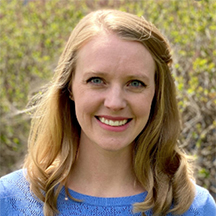 | Julianna ManskeNew to Public Health Residency Program FacilitatorJulianna Manske is the is facilitator and cofounder of the New to Public Health Residency Program and is employed with the University-Wisconsin Madison School of Nursing. Julianna spearheaded the workgroup in 2016 that developed and implemented the Southeastern Wisconsin Public Health Nurse Residency Program. This program, which ran from 2017-2020, served as a foundation to build the New to Public Health Residency Program, which supports public health professionals in their first year of employment at a local, regional, tribal, or state health department. Julianna serves as a co-chair on the Association of Public Health Nurses’ Education and Professional Development subcommittee. Julianna graduated from Concordia University in 2014 with a Master of Science in Nursing Education, and Carroll University in 2009 with a Bachelor of Science in Nursing. Julianna is passionate about workforce development and she is grateful to work with an incredible team developing the New to Public Health Residency Program and collaborating with public health leaders across the country. |
 | Hannah HayesNew to Public Health Residency Program Facilitator and Project ManagerHannah Hayes is the New to Public Health project manager, facilitator, and co-developer of the New to Public Health Residency Program. In 2018 Hannah completed her Master of Public Health (MPH) at the University of Wisconsin-Madison. During this time, Hannah partnered with the Southeastern Wisconsin Public Health Nurse Residency Program, where she assisted in the co-development of a toolkit for the dissemination and implementation of the residency program, which served as the foundation for the New to Public Health Residency Program. Hannah is currently employed by the University of Wisconsin-Madison School of Nursing as the Project Manager of the New to Public Health Project. Hannah graduated with her Bachelor of Science in Nursing in 2016. Hannah has experience in family practice & forensics, postpartum, and public health nursing in addition to serving as a public health clinical instructor. Hannah is passionate about social justice, empowering new professionals, and advancing the public health profession. |
| Meghan SpredemannMs. Meghan Spredemann has a progressive career in public health with over 10 years of experience with backgrounds in Environmental Public Health, Emergency Preparedness, Public Health Operations and a focus on Quality Improvement Initiatives. Currently, Meghan is an employee of the City of Wauwatosa Health Department and working to improve the city’s health equity among black, indigenous and other people of color and COVID-19 vaccine acceptance. Meghan has earned a Master’s of Health Communication from Northwestern University School of Communications, and received her BS in Environmental Public Health from the UW-Eau Claire. |
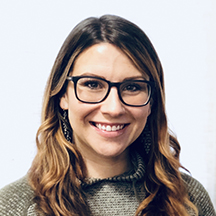 | Ashley HaasAshley Haas is a public health nurse and the emergency preparedness coordinator for the Village of Greendale Health Department. She graduated with a Bachelor’s of Science in Nursing from MSOE in 2008. Haas is currently pursuing a Masters in Public Administration from Upper Iowa University. After graduation from Nursing school, she began working in critical care at a local hospital and gained invaluable knowledge, skills, and experiences. In 2017, she made a transition to focus on promoting, protecting, and improving the health of a community in the very village she grew up in. Her training in emergency preparedness empowered her to lead the community response in the COVID-19 pandemic through the coordination of COVID-19 testing events and programs within the community, with businesses and with the local school district. She organized staff and volunteers to operationalize community vaccine clinics that resulted in over 5,000 COVID-19 vaccines administered and collaborated with the Wisconsin National Guard for testing and vaccination support. She also maintains active participation in the Southeast Wisconsin Healthcare Emergency Readiness Coalition and has presented Stop the Bleed program materials at local, State, and National level conferences. Ashley is dedicated to finding innovative ways to educate and inform those she works with and the larger community as a whole and she does it while bringing her sense of humor and ability to connect with others on a personal level to everything she does. |
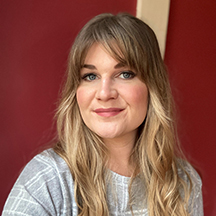 | Christina Schulte-PereyraChristina Schulte-Pereyra is a public health nurse (PHN) with the State of Alaska Section of Public Health Nursing. As a COVID-19 Nurse Manager, she leads procedure development to improve quality and efficacy, and manages the statewide case investigation and contact tracing workforce. Ms. Schulte-Pereyra has an extensive background in public health and emergency preparedness. She has served the Section of Public Health Nursing as the Emergency Preparedness PHN in Southeast Alaska, leading the region's public health preparedness emergency response program; and she previously served as an Itinerant PHN providing evidenced-based comprehensive public health nursing services addressing public health needs in rural communities. Ms. Schulte-Pereyra earned a bachelor's degree in nursing from Seattle Pacific University, and is graduating in May 2022 with her master’s as a Family Nurse Practitioner from the University of Alaska Anchorage. |
 | Sanjib BhattacharyyaDr. Sanjib Bhattacharyyais the Public Health Laboratory Director and Special Deputy Health Commissioner at the City of Milwaukee Health Department. Dr. Bhattacharyya is an adjunct faculty at the UW-Milwaukee Zilber School of Public Health and Clinical Associate Professor, College of Health Sciences. Dr. Bhattacharyya has PhD in Molecular Microbiology and postdoctoral training inmicrobial pathogenesis at the Medical College of Wisconsin, Milwaukee, Wisconsin. Dr. Bhattacharyya serves onthe APHL Board of Directors and liaison to the Global Health and Knowledge Management committees. He is a graduate of the APHL’s Emerging Leader Program, serves as national and international coach and involves in mentoring students. Bhattacharyya is activelyinvolved in applied research in transdisciplinary areas of laboratory science,public health, policy and published over 45 peer-reviewed research articles and book chapters. |
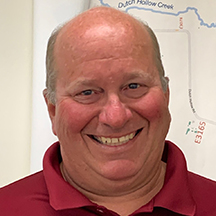 | Jeff JelinekJeff Jelinek has over 32 of experience in emergency preparedness. Jeff has trained staff throughout Wisconsin on the National Incident Management System and conducts training on Emergency Operation Plan development, staffing Incident Command System Organizations and other preparedness trainings as requested. Jeff has conducted train-the-trainer courses for future Incident Command System instructors across the United States and internationally. He currently works as the Emergency Management Director for Sauk County Health Department in Wisconsin where he has been involved in two presidential disaster declarations and has served as interim health officer during the Covid-19 pandemic. Prior to this role, Jeff worked as the Bioterrorism Education and Training Officer at the Bureau of Operations with the State of Wisconsin Department and at the Wisconsin Department of Corrections as a Training Supervisor. In addition to this work, Jeff has served on a national re-write committee for the Incident Command System in 2005-2006. Jeff has a Bachelor of Science Degree in Criminal Justice with an emphasis in Security Administration and is currently pursuing a master's degree in Adult Education. |
Acknowledgements
- Susan Zahner
- Michael Jaeb
- Angela Acker
PLANNING COMMITTEE MEMBERS
| Hannah Hayes, MPH, RN University of Wisconsin-Madison, School of Nursing | Julianna Manske, MSN, RN, OCN University of Wisconsin-Madison, School of Nursing | Susan Zahner, DrPH, RN, FAAN University of Wisconsin-Madison, School of Nursing |
| Deborah Heim, PhD, MS, MN, BSN Public Health Nurse Consultant (PHNC) Wisconsin Division of Public Health Office of Policy and Practice Alignment (OPPA) for the SE region | Ajay Sethi, PhD, MHS UW-Madison School of Medicine and Public Health |
CONTENT REVIEWERS
| Angela Acker University of Wisconsin-Madison, Populations Health Institute | Michael Jaeb University of Wisconsin-Madison, School of Public Health |
| Paula Bizot University of Wisconsin-Madison, School of Nursing | Abra Vigna University of Wisconsin-Madison, Populations Health Institute |
POLICY ON DISCLOSURE
It is the policy of the University of Wisconsin–Madison Interprofessional Continuing Education Partnership (ICEP) to identify, mitigate and disclose all relevant financial relationships with ineligible companies* held by the speakers/presenters, authors, planners, and other persons who may influence content of this accredited continuing education (CE). In addition, speakers, presenters and authors must disclose any planned discussion of unlabeled/unapproved uses of drugs or devices during their presentation.
For this accredited continuing education activity all relevant financial relationships have been mitigated and detailed disclosures are listed below.
*Ineligible companies are those whose primary business is producing, marketing, selling, re-selling, or distributing healthcare products used by or on, patients.
The ACCME does not consider providers of clinical services directly to patients to be ineligible companies.
The University of Wisconsin provides equal opportunities in employment and programming, including Title IX requirements. The University of Wisconsin fully complies with the legal requirements of the ADA and the rules and regulations thereof. If any participant in this educational activity is in need of accommodations, please contact [email protected].
Cohort-2 Disclosures
Accreditation Statement
 | In support of improving patient care, the University of Wisconsin–Madison ICEP is jointly accredited by the Accreditation Council for Continuing Medical Education (ACCME), the Accreditation Council for Pharmacy Education (ACPE), and the American Nurses Credentialing Center (ANCC) to provide continuing education for the healthcare team. |
Credit Designation Statements
American Nurses Credentialing Center (ANCC)
The University of Wisconsin–Madison ICEP designates this Internet Enduring Material activity for a maximum of 8.25 ANCC contact hours.
Continuing Education Units (CEUs)
The University of Wisconsin–Madison ICEP, as a member of the University Professional & Continuing Education Association (UPCEA), authorizes this program for .825 CEUs or 8.25 hours
Certified Health Education Specialists (CHES) and/or Master Certified Health Education Specialists (MCHES)
Sponsored by University of Wisconsin–Madison ICEP, a designated provider of continuing education contact hours (CECH) in health education by the National Commission for Health Education Credentialing, Inc. This program is designated for Certified Health Education Specialists (CHES) and/or Master Certified Health Education Specialists (MCHES) to receive up to 8.25 total Category I continuing education contact hours. Maximum advanced-level CECH available are 1.0. Continuing Competency credits available are 8.25.
Total contact hours: 8.25
Entry-level contact hours: 7.25
Advanced-level contact hours: 1.0
Available Credit
- 8.25 ANCC Contact Hours
- 8.25 CECH Approved Credits
- 8.25 Entry-level Continuing Competency credits
- 1.00 Advanced-level credits
- 7.25 Entry-level credits
- 8.25 University of Wisconsin–Madison Continuing Education Hours

 Facebook
Facebook X
X LinkedIn
LinkedIn Forward
Forward